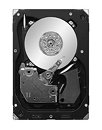Tuesday, July 14th 2009

Seagate Releases Cheetah 15K.7, Fastest, Most Efficient, and Highest Capacity
Seagate announced it is now shipping its technology-leading Cheetah 15K.7 enterprise-class hard drives into the worldwide distribution channel. As the highest performing, highest capacity 3.5-inch mission critical hard drive with best-in-class reliability for Tier 1 environments, the Cheetah 15K.7 drive is ideal for a wide range of server and storage applications. With the Cheetah 15K.7 hard drive, Seagate's technology leadership moves firmly past the competition as it delivers the industry's first 15K-rpm drive to reach the 600GB capacity point while providing record reliability of 1.6 million hours MTBF.
The Cheetah 15K.7 drive is available with the latest 6 Gb/s SAS or 4 Gb/s FC interfaces, and includes Seagate PowerTrim technology, which dynamically reduces power consumption. Together, these features enable system builders to deliver lower-cost, multi-drive servers and storage systems, making the Cheetah 15K.7 ideal for use in environments ranging from small and medium-sized businesses to the largest enterprises."Bell Micro's customers continue to require added capacity and performance for their server and storage systems, but many also must focus on finding ways to lower a system's total cost of ownership (TCO) or easily integrate new solutions using existing platforms," said Joe Cousins, vice president of Marketing at Bell Microproducts. "We're pleased to now offer the Seagate Cheetah 15K.7 family of drives that fill these critical needs. For users looking for the most advanced technology to create new premium systems, or those who are looking to extend the life of their existing systems, the Cheetah 15K.7 delivers the low TCO and promise of easy integration for businesses of all sizes."
Cheetah hard drives are the standard for existing enterprise systems. Cheetah drives are aimed directly at enabling businesses to sensibly grow and scale as their information needs continue, while at the same time providing the reliability required to avoid costly interruption or downtime.
For more information about the Cheetah 15K.7 drive, visit Seagate's Cheetah product page.
Source:
Seagate
The Cheetah 15K.7 drive is available with the latest 6 Gb/s SAS or 4 Gb/s FC interfaces, and includes Seagate PowerTrim technology, which dynamically reduces power consumption. Together, these features enable system builders to deliver lower-cost, multi-drive servers and storage systems, making the Cheetah 15K.7 ideal for use in environments ranging from small and medium-sized businesses to the largest enterprises."Bell Micro's customers continue to require added capacity and performance for their server and storage systems, but many also must focus on finding ways to lower a system's total cost of ownership (TCO) or easily integrate new solutions using existing platforms," said Joe Cousins, vice president of Marketing at Bell Microproducts. "We're pleased to now offer the Seagate Cheetah 15K.7 family of drives that fill these critical needs. For users looking for the most advanced technology to create new premium systems, or those who are looking to extend the life of their existing systems, the Cheetah 15K.7 delivers the low TCO and promise of easy integration for businesses of all sizes."
Cheetah hard drives are the standard for existing enterprise systems. Cheetah drives are aimed directly at enabling businesses to sensibly grow and scale as their information needs continue, while at the same time providing the reliability required to avoid costly interruption or downtime.
For more information about the Cheetah 15K.7 drive, visit Seagate's Cheetah product page.

29 Comments on Seagate Releases Cheetah 15K.7, Fastest, Most Efficient, and Highest Capacity
I fail to see how this beats an SSD.
Currently I have 2x 300GB Cheetah 15k.5 and one 300GB Cheetah 15k.6 they are all amazingly fast already and 15k.7 blows them out of the water... I have noticed that my 15K.6 is a little more quiet so I'm assuming 15k.7 also has some improvement on acoustics which makes a whole lot of difference in a data farm.
Heat is still a problem though both 15k.5 and 15k.6 still run pretty hot compared to my normal drives even with active/passive cooling.
And more motherboards are coming out with SAS onboard now so its picking up speed.
besides, an SSD will always fall behind mechanical drives in one thing.
(how fast they spin :D)
And Mussy, access times are all that matter.. they're all that differenciate between HDD's and SSD's, and what it's coined as, is "speed."
Find me a SINGLE SSD that can produce a number to "crush" the 200mb/s mark.
I agree that SSD is great for speed but really that speed is at the cost of reliability. Of course you already know this because thats why you would be RAID 0'ing it in the first place... And if your SSD is so much faster than your HDD than your HDD would'nt do much for your RAID 0 but for backup.
Let me know when SSD's are used for enterprise. Thats when they are stable enough to handle mission critical data and good enough for me.I'm using an Adaptec 2405 RAID controller. It's one of the cheaper SAS controller cards with decent specs.
Storage has the highest costs for the least increase in performance when it comes to computer parts.
The reason why they don't release 15k RPM drives on SATA is because they are very expensive (I suspect these will be close to $1000 each), it only takes two of them to saturate SATA II bandwidth (375 MB/s for SATA II), and they are hot (few cases have proper cooling).